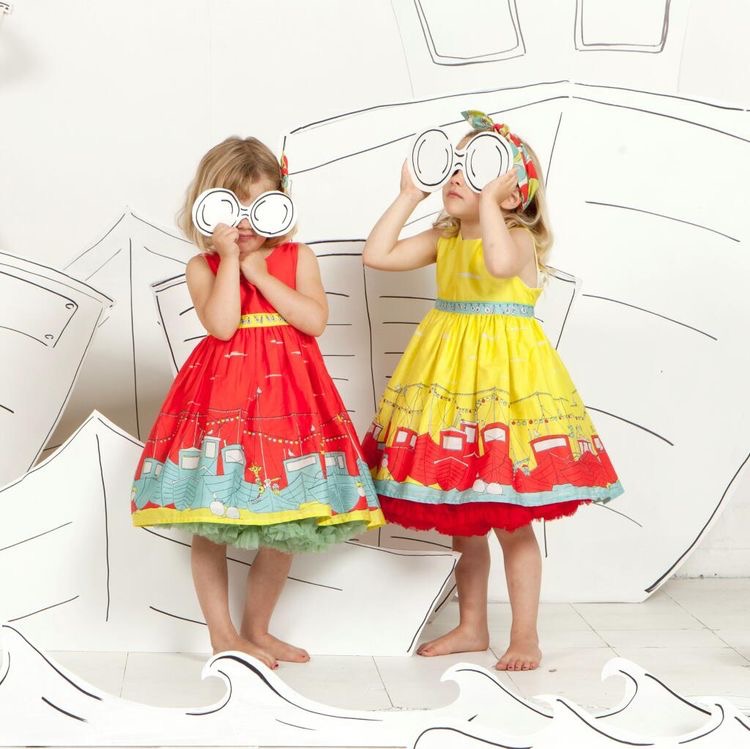
Belief is “like a map, a neural representation of an experience that seems meaningful, real or true,” say the authors of Born to Believe, Andrew Newberg and Mark Waldman.
So beliefs, for each of us, are akin to an inner map, influencing how we think, feel and act, within the world. What we believe about ourselves impacts how we feel about ourselves and it is the same for children.
Children in primary school are at a stage where core beliefs about themselves and the world around them are still being formed. What they begin to believe about themselves becomes, over time, their truth.
So a child who develops self-beliefs such as “I am kind. I am competent. I am lovable” will likely find themselves on a path to good self-esteem
A child who, on the other hand, develops more negative beliefs about themselves, such as “I have no talent. I am not liked by others” will likely have lower self-esteem and this can affect their mental health.
The beliefs that children develop about themselves really matter for many reasons and Valentine’s Day, with its emphasis on love and the giving of cards, provides an opportunity for schools and parents to impact in a positive way on the developing beliefs children hold about themselves
At Rush National School in north Co Dublin, children have been making Valentine’s cards for themselves. They have been encouraged to think about what they love about themselves and to write it to themselves in a card, learning in the process that how you think about yourself, impacts in a big way on how you feel.
This link between thought and feeling is good to know about, even from a young age. Making cards for themselves was a fun and concrete way to teach them the importance of loving themselves.
Here are five good reasons to take advantage of the opportunity provided by Valentine’s Day to teach children the importance of self love:
1. Self-esteem links to mental health
Many studies show that low self-esteem is a risk factor in developing mental health difficulties, said Ashlee Mulliganin a 2011 report by the Ontario Centre for Excellence for Child and Youth Mental Health, and positive self-esteem is a protective factor against mental health issues. Mulligan said positive self-esteem is associated with “mental well-being, happiness and adjustment” and that increasing self-esteem may “reduce the risk of depression, regardless of whether or not the individual is experiencing stressful life events”. So self-esteem matters, and as children are still forming core beliefs about themselves, adults can engage with them to really tune in to that fact.
2. Making children aware of the beliefs they hold about themselves
Because beliefs form under the surface of the mind and largely exist within the unconscious, it can be hard, even for adults sometimes, to have clarity about the beliefs we hold about ourselves. Children, unless specifically asked what they love about themselves, are unlikely to ponder the idea in their conscious mind and so it is worth bringing belief-development to the surface. Not only will that give children the chance to develop positive beliefs about their own worth but also that focusing on loving yourself is the right thing to do.
Self-love is not about being narcissistic or self-absorbed, it is about having a solid sense of your unique worth and our children deserve the chance to establish that. By encouraging children to do this Valentine’s activity, the adult involved can tune in to any hesitation or reluctance on the part of a child to believe and express good things about themselves. Adults have an opportunity to influence, in a positive way, the child’s developing sense of their own unique qualities. And that matters because mental health is precious.
3. The psychological task facing children in primary school
I was struck when engaging in this activity in Rush National School by the child who asked me if thinking about the good things about themselves was selfish. It struck me because it pointed to their developing belief, a type of belief that might say in the mind “Don’t be thinking good of yourself, that’s not the right thing to do.”
Primary school children are at a particular stage of psychological development. They are dealing with a particular “mind” task. The psychologist, Erik Erikson, refers to this stage as ‘Industry versus inferiority’ which means that children, between about five and 12, are trying to do things by themselves, to work out rules of behaviour. The psychological task they face is how to be industrious. So the child who asked the question was checking because it was important to them that they weren’t being selfish. Children want to do the right thing and behave in a way that is deemed to be “correct”.
Morgan Doran, principal of Rush National School, sees “daily examples of children trying hard to do the right thing, trying to be helpful, do things for others and feel like they are succeeding. Sometimes they are more focussed on trying to do right for others than they are on being kind to themselves.”
Doran believes it is important for children to know that loving themselves and feeling good about themselves is the right thing to focus on. “We are delighted to have the chance to instil in the children this belief that self-worth really matters. Because it does matter and this Valentine’s activity provides an opportunity to teach them that.
4. Confidence needs an internal source
We can all source confidence inside ourselves or externally. Confidence that comes from within is sourced from the way we think about ourselves. A child who believes, and so thinks, that they are likable or kind, will find it easier to bounce back when someone says something mean to them or leaves them out of a game than a child who has no internal confidence and has only negative thoughts about themselves.
To believe you are likable makes it more likely to think the incident may be a one-off or the other child is just having a bad day. If beliefs the child holds about themselves are negative, they are more likely to think such incidents may happen again. They could even just start to expect to be left out and withdraw from peers. Because thoughts about the self are influenced by beliefs, the beliefs that children develop impact in a massive way on their level of internally sourced confidence.
If a child can think of lots of good things about themselves – for example, that they are loyal, hard-working, caring, helpful and so on – they will be more protected in the social media world. They will not have such a great need to source their confidence externally, for example, in the form of “likes” or followers. Everyone seeks some confidence, at least some of the time, from external sources, but to seek too much is not healthy. The feedback received by others can never be within our control.
For a child, external confidence could be sourced from congratulations at scoring a goal in a match or as praise from a parent if they do well in a test. But it can impact negatively on mental health if there is a great need for external validation to keep confidence levels up.
So children benefit from learning how to validate themselves. By focusing on what they love about themselves, children boost their internal confidence source. This can help them feel mentally stronger when they socialise online.
5. A path that does not lead to self-absorption
Many believe some young people are quite self-absorbed and narcissistic, said author and speaker Simon Sinek, in a talk called Millennials in the Workplace, although given the incessant focus society places on physical appearance today, if this is true, it is wholly understandable.
Sinek spoke of the tendency for many young people to become addicted, on social media, to the dopamine that is released in the body when someone responds to them online or they get a “like”. Some believe that an entire generation of young people is becoming hooked into this “dopamine effect”.
While this generalisation does not fit everyone, it is apparent that we need an alternative path for young people so they do not feel the need to fixate on validation from others. We need to provide a path that points towards feeling good and having awareness of their strengths. Focusing on what is going on within their own minds, for example, by reflecting on how they demonstrate kindness or consideration, can steer young people from self-absorption, especially if this reflection becomes a habit.
And the habit has more chance of success if it is formed early. It can be hard growing up in today’s world and young people have many pressures. A generation of young people, according to Sinek, has the lowest self-esteem ever.
So we need to acknowledge the value of teaching children about self love. Love yourself . . . on Valentine’s Day there can be no greater love.
By Anne Mccormark
Click here to shop slay looks






